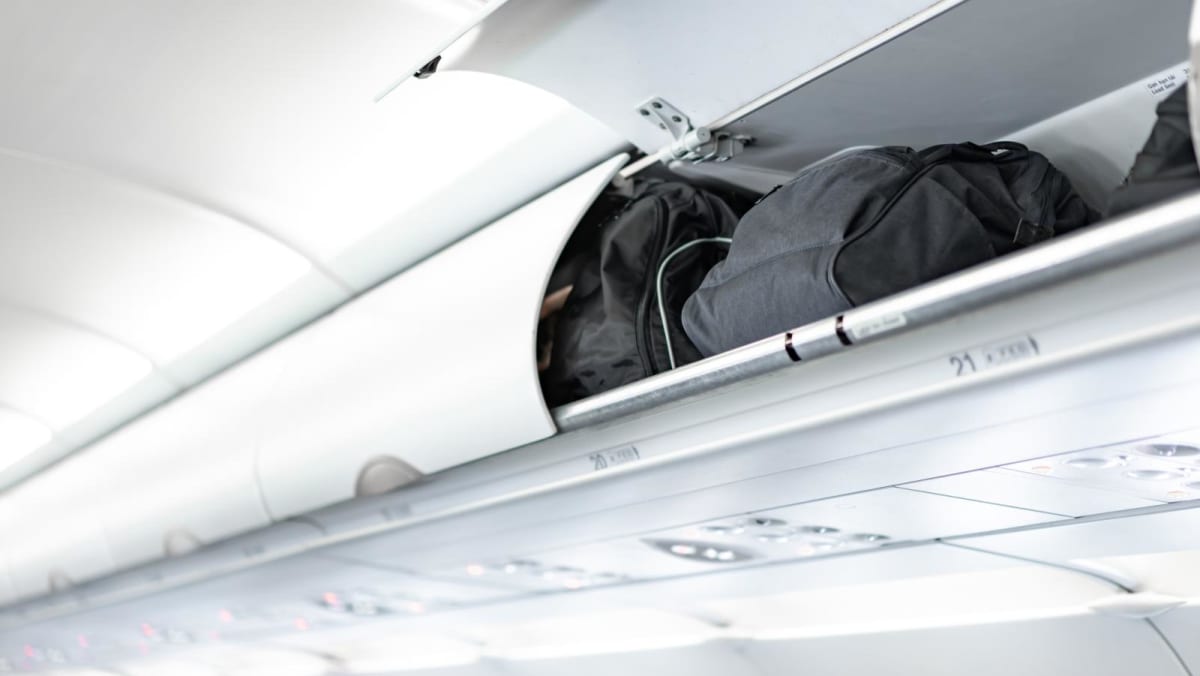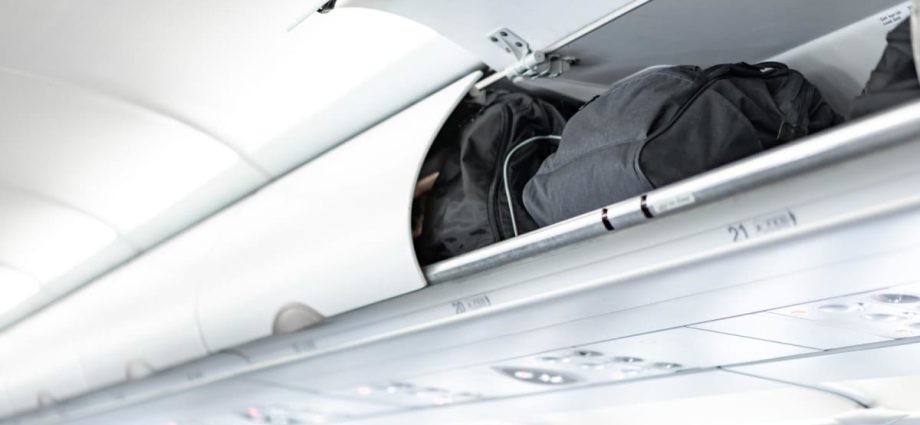
POLICE WATCHING HIS EVERY MOVE
On the morning of Dec 15, 2023, Yi and a few Singapore Police Force officers were on a Cambodia Airways flight heading to Singapore from Cambodia, where Yi had worked as a businessman for about four years.
Yi, Assistant Superintendent of Police (ASP) Lee Jun Long and the victim, another Chinese national, were seated within rows of each other.
Yi opened the overhead compartment for his row before glancing at other passengers and noting that they were asleep.
He slipped a haversack from the connected overhead compartment above the next row and took it to an empty seat at the back of the plane to rummage through it.
Noting nothing of interest, he returned the bag but stole a second bag. Uninterested in its contents, Yi returned the second bag.
At this point, his actions had aroused the attention of ASP Lee, who related his observations to two fellow police officers on the same flight. The trio observed Yi closely.
Yi then moved towards the victim, after noticing that the man was not paying attention to his belongings.
Opening the compartment above the victim’s head, he removed a leather bag that contained two wallets with S$250 cash, three bank cards, and two laptops.
He took the bag to an empty seat at the front of the plane to go through it, all while watched by three police officers.
ASP Lee approached Yi and tapped him on the shoulder, asking him what he was doing and whether the bag was his.
Yi lied that the bag was his, but the officer warned him to tell the truth as he noticed that the accused had taken two bags earlier. Yi admitted the bag was not his, but claimed that he was searching for his own bag, as he had forgotten where it was.
ASP Lee held up the leather bag to ask the passengers who it belonged to, and the victim shouted that the bag was his.
The police officer asked Yi to produce his passport, and the accused headed to his bag, which was above his seat.
“The accused was not able to explain why he was now able to find his bag, which contradicted his earlier explanation that he was searching for his bag as he could not remember where it was,” Deputy Public Prosecutor Dan Pan told the court.
Yi was arrested when the plane landed at Changi Airport and charged the next day.
He did not admit to his offences during investigations and insisted that he had been trying to search for his bag as he could not remember where he had placed it.
OFFENCE DIFFICULT TO DETECT
Arguing for seven to eight months’ jail for Yi, Mr Pan pointed out that Yi’s offence was clearly premeditated and that he had targeted victims he noticed were asleep or not paying attention.
Victims in such cases are highly vulnerable as they are unable to keep constant watch of their belongings, the DPP added. Such offences are hard to detect and would impact Singapore’s reputation as a safe country, Mr Pan said.
The prosecutor cited 43 cases of aircraft theft in 2012 and 35 cases in 2013 – a jump from 2011, when only one theft case on board aircraft was reported.
Mr Pan argued that Yi’s plea of guilt was not indicative of remorse as he had been caught red-handed with overwhelming evidence against him. Yi had also been uncooperative during investigations, the prosecution noted.
Speaking through a Mandarin interpreter, Yi pleaded for proceedings to be completed “as soon as possible” and requested for a phone call to his family in China.
“They did not know that I was in prison and Chinese New Year eve is drawing near as well,” Yi said.
“(My family) thought I was still in Cambodia and have not received any news from me and they are concerned for my safety, whether I’m being kidnapped or killed,” he added.
District Judge Chay Yuen Fatt considered the factors highlighted by the prosecution, including the prevalence of such offences.
Considering the difficulty of detecting such offences, it was “entirely fortuitous” that the police officers were on board the plane and vigilant enough to detect Yi’s crimes, the judge said.
For theft, Yi could have been jailed for up to three years, fined, or both.

